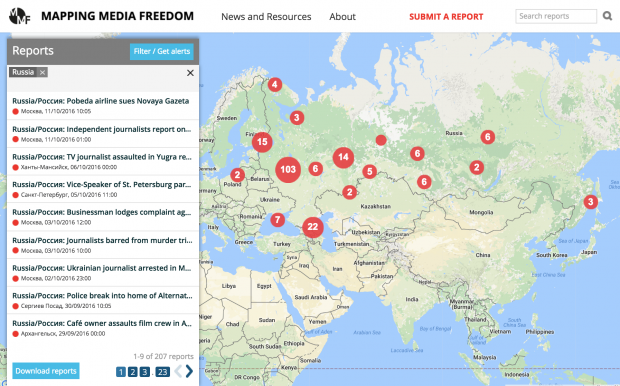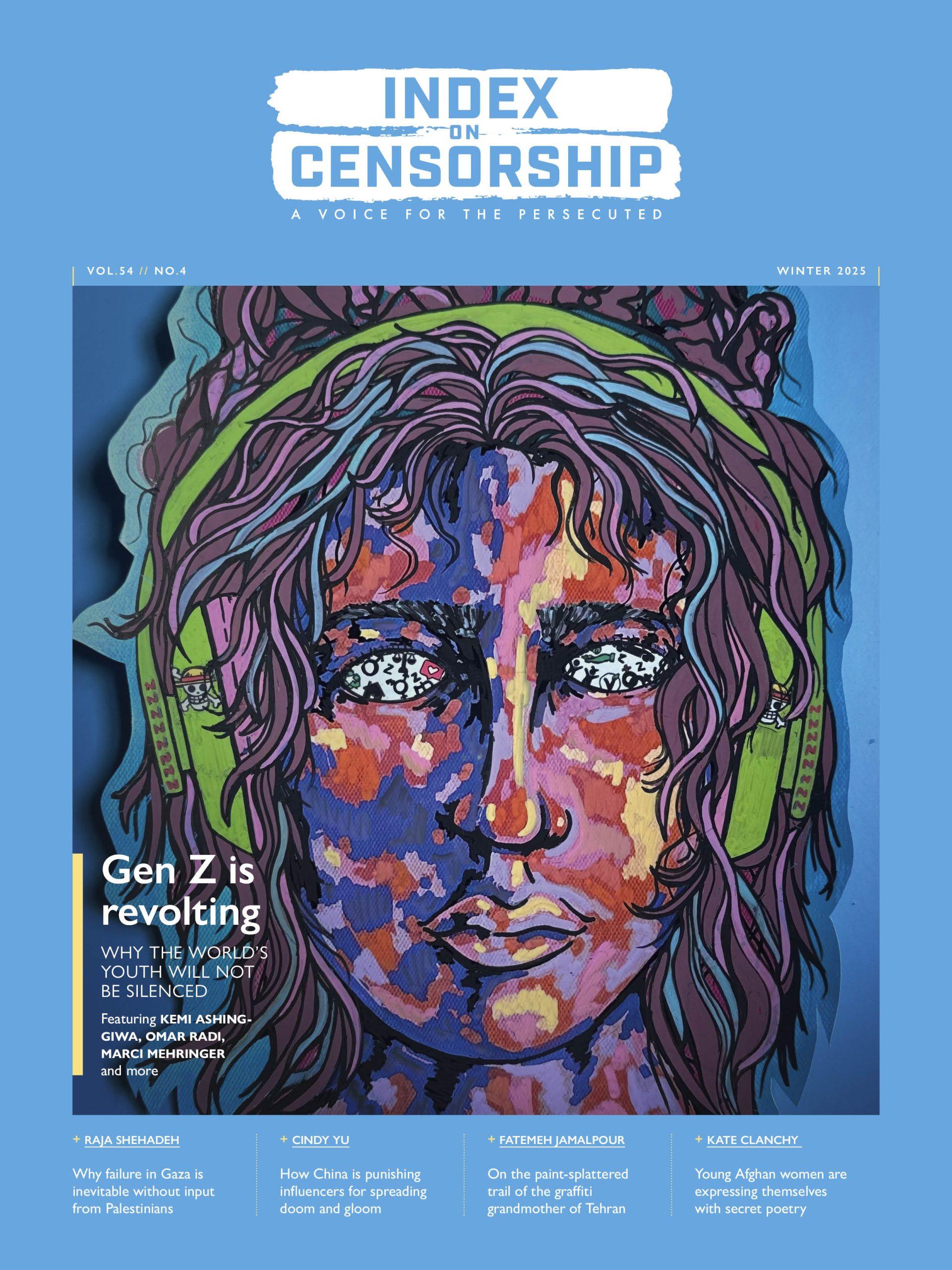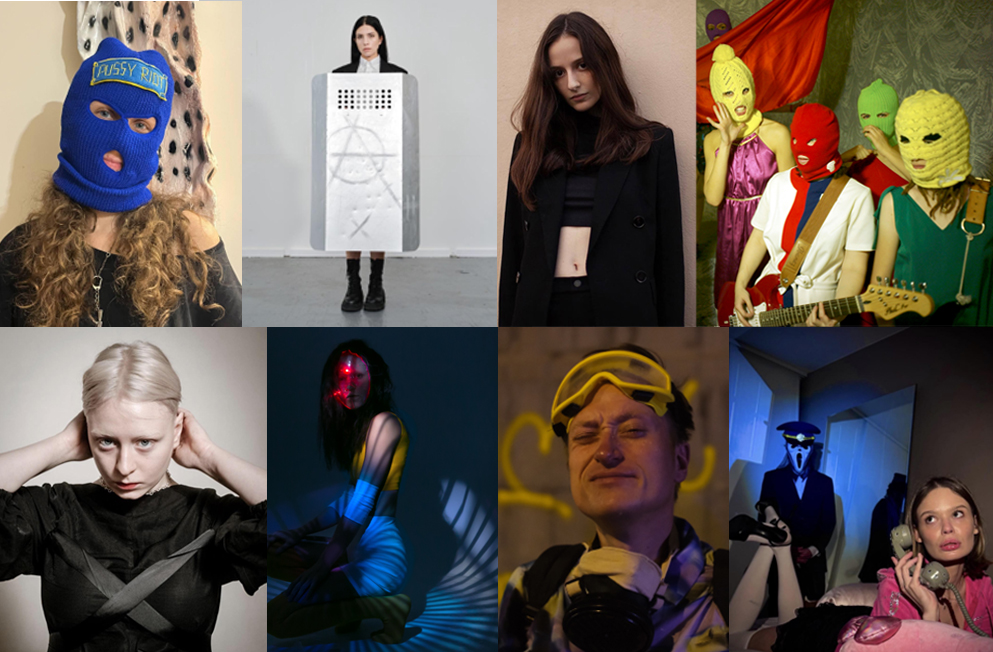The conflict over Crimea and the fighting in eastern Ukraine has resulted in a media war, which has left both Russian and Ukrainian journalists struggling to report accurately on the situation, writes Mapping Media Freedom correspondent Andrey Kalikh.
In Russia, the partisan media environment has been driven by state-backed broadcasters. Federally financed TV channels — Russia 1 and RT — toe the government line on events in eastern Ukraine and Crimea. In 2015, the government boosted its funding of media to 72 billion rubles ($1.2 billion).
Mapping Media Freedom is monitoring the situation with Ukrainian media and journalists working in Russia. These are some of the cases filed by MMF Russian correspondents.
Reporting teams working for Ukrainian television outlets were barred from attending the March 2016 trial of Nadezhda Savchenko, a pilot captured by pro-Russian separatists in eastern Ukraine and handed over to Russian military forces. Savchenko was accused of having directed artillery fire that killed two Russian journalists.
Former Los Angeles Times correspondent Sergei Loiko, a Russian, has been repeatedly harassed in Moscow, where he is based, following the publication of articles on the conflict and his book The Airport, a novel set amid the battle for Donetsk airport in eastern Ukraine. In October 2015 he received a threatening phone call, followed in April 2016 by an incident during which four unknown perpetrators approached him as he was entering independent TV Dozhd’s studio to participate in a live programme.
Some journalists have been barred from entering Russia altogether. In one case, Sergei Supinsky, an AFP photographer based in Ukraine, was stopped from traveling to Moscow from Minsk. Supinsky was told he could not board his flight. No reason was given for the ban.
Russian journalists and activists have also become targets for pressure if they are perceived as supporting Ukraine or objecting to Russian involvement in the conflict.
In April 2016, Mikhail Afanasyev, an independent Novaya Gazeta correspondent based in the Republic of Khakassia posted a photo on Facebook of Kiev’s Maidan Square, where he had recently visited. He was immediately targeted with threats and insults by people referring to themselves as “patriots”.
In December 2015, a blogger from the Siberian city of Tomsk received a five-year sentence for “extremist” videos published on his YouTube page. In one of his videos, later removed, Vadim Tyumentsev referred to refugees from eastern Ukraine “who come and stay in Tomsk, although there are enough other problems in the city”. He accused officials of providing more help to the newcomers than the local population.
This article was updated on 6 September 2016 to provide more context and clarification.





